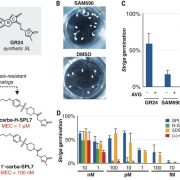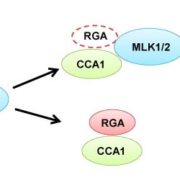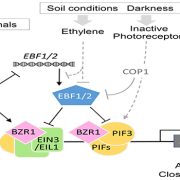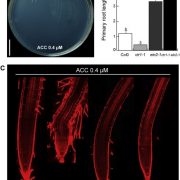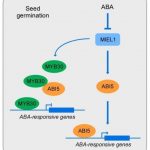Nucleocytoplasmic shuttling of ETHYLENE RESPONSE FACTOR 5 mediated by nitric oxide suppresses ethylene biosynthesis in apple fruit (New Phytol.)
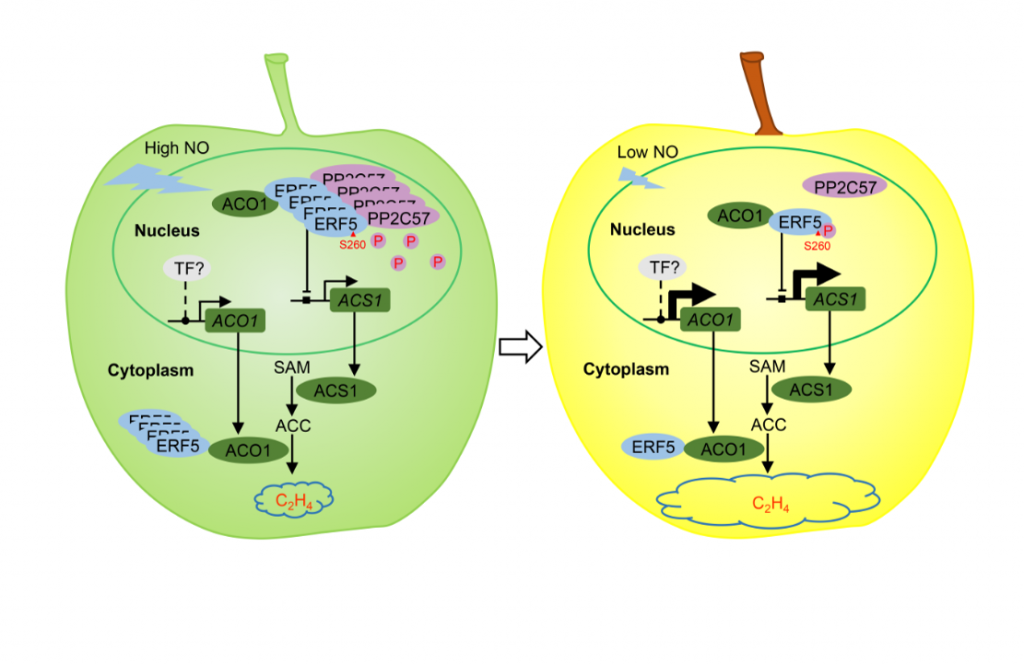 Mechanisms of phytohormone modulation and their interface with other regulatory molecules are still being uncovered. Nitric oxide (NO) is a regulatory molecule which has been shown to affect ethylene biosynthesis through the action of ETHYLENE RESPONSE FACTOR 5 (ERF5) in apple fruit. New work by Ji et al. demonstrates that ERF5 nucleocytoplasmic shuttling is dependent on its phosphorylation state. Following application of a NO donor, ERF5 expression increases while ethylene biosynthesis is inhibited. NO stimulates PP2C57-mediated dephosphorylation of ERF5 and facilitates ERF5 translocation from the nucleus to cytoplasm where it suppresses ethylene biosynthesis. Delineating the stages of signal transduction cascades is critical in understanding how processes such as ripening are controlled, with NO presented as a ripening suppressor and inhibitor of ethylene. This study underpins the importance of examining beyond transcriptomic studies and including analysis of protein post-translational modification in uncovering regulatory networks. (Summary by Orla Sherwood, @orlasherwood) New Phytol. 10.1111/nph.18071
Mechanisms of phytohormone modulation and their interface with other regulatory molecules are still being uncovered. Nitric oxide (NO) is a regulatory molecule which has been shown to affect ethylene biosynthesis through the action of ETHYLENE RESPONSE FACTOR 5 (ERF5) in apple fruit. New work by Ji et al. demonstrates that ERF5 nucleocytoplasmic shuttling is dependent on its phosphorylation state. Following application of a NO donor, ERF5 expression increases while ethylene biosynthesis is inhibited. NO stimulates PP2C57-mediated dephosphorylation of ERF5 and facilitates ERF5 translocation from the nucleus to cytoplasm where it suppresses ethylene biosynthesis. Delineating the stages of signal transduction cascades is critical in understanding how processes such as ripening are controlled, with NO presented as a ripening suppressor and inhibitor of ethylene. This study underpins the importance of examining beyond transcriptomic studies and including analysis of protein post-translational modification in uncovering regulatory networks. (Summary by Orla Sherwood, @orlasherwood) New Phytol. 10.1111/nph.18071


